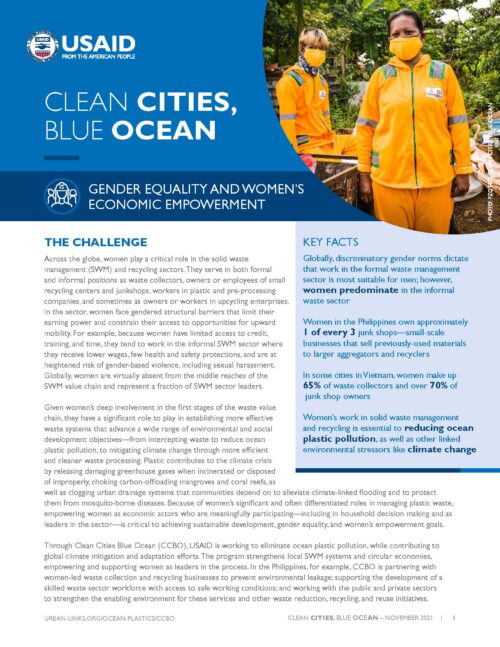Clean Cities, Blue Ocean Gender Equality & Women’s Economic Empowerment Fact Sheet
Across the globe, women play a critical role in the solid waste management (SWM) and recycling sectors. They serve in both formal and informal positions as waste collectors, owners or employees of small recycling centers and junkshops, workers in plastic and pre-processing companies, and sometimes as owners or workers in…
